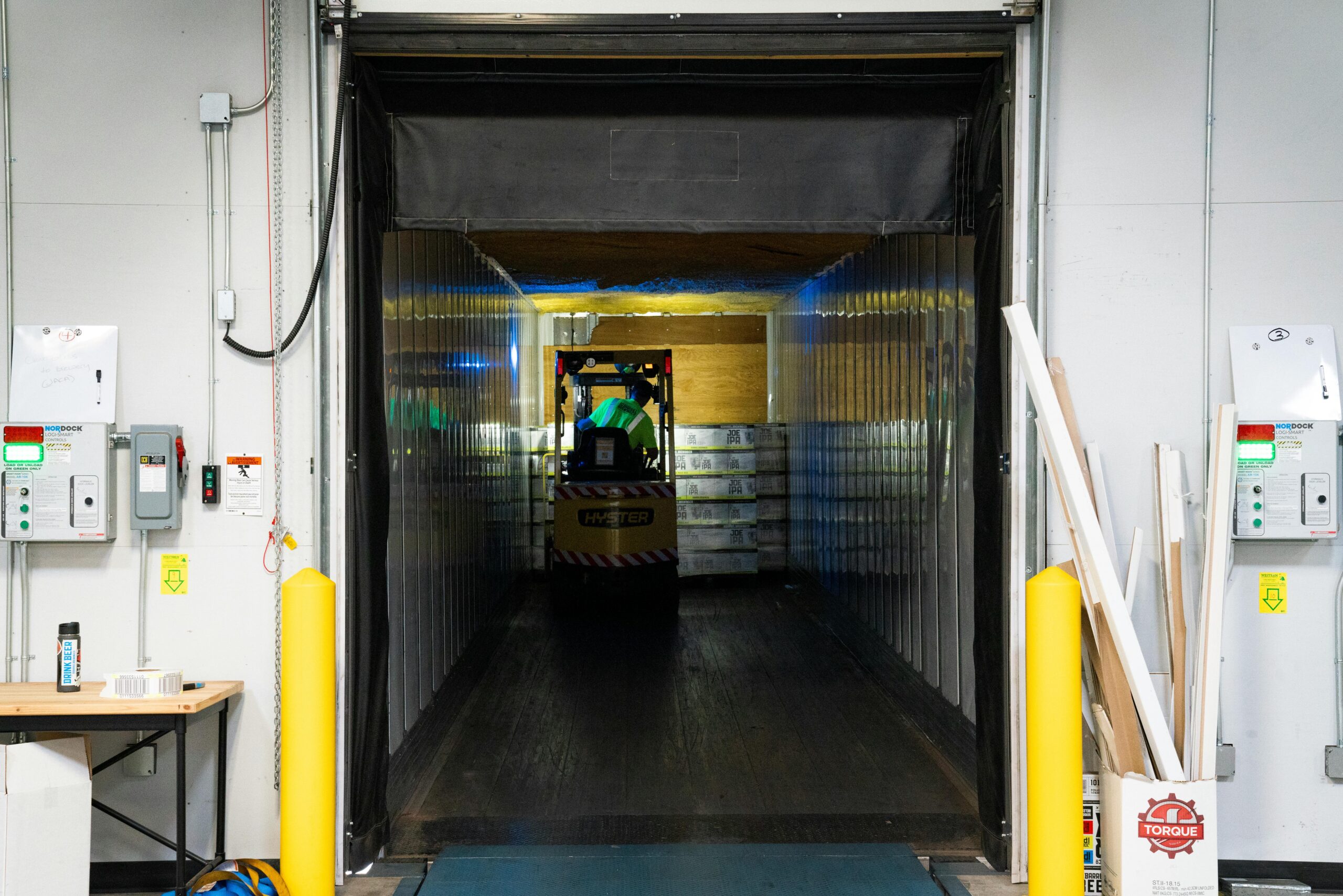8 Facts About Logistics Managers
Last Updated on July 22, 2025
Getting finished food products from food manufacturers to supermarkets is more complex than it might seem. Products can travel across the country and even the world!
Ensuring that they arrive on time while adhering to proper food safety standards presents a difficult challenge for food manufacturers. Factors such as efficiency and workforce availability heavily influence the logistics decisions made.
When companies become too large, getting products to their destination can be a difficult task. Therefore, companies logistics managers to help get products to their destination. They work diligently to ensure that everything runs smoothly so customers never have to wonder about the whereabouts of their products!
1. Logistic managers organize the distribution of food
Logistic managers:
plan, organize and monitor the shipping, receiving, storage and distribution of all items received either from suppliers, vendors or food manufacturing plants. They are senior-level coordinators who ensure that products are moved efficiently and accurately in and out of a food processing plant.
Some of the responsibilities of a logistic manager include:
- Managing the receipt of inventory
- Preparing products for shipment
- Managing the physical inventory or items within the production facilities warehouse
A key component of a logistic manager’s job is monitoring the time it takes for a product to be made in the factory and delivered to the customer. They track how long a product sits in the warehouse, how long it takes for someone to find the item in the warehouse and how long the product spends in transit.
Additionally, depending on the size of the company, Logistic managers are also responsible for supervising warehouse staff and drivers. They also organize the warehouse to ensure a safe workplace and proper storage of inventory and materials.
2. Logistics managers have flexible educational backgrounds
Logistics managers come from a variety of educational backgrounds. The majority have bachelor’s degrees or diplomas in fields such as business, computing, economics, logistics, or management. Many food companies are flexible regarding educational qualifications; however, some have stricter requirements, mandating that candidates hold degrees specifically in logistics or transport and distribution management. If students are interest to learn about this field they can check out the Canadian Logistics Association or Supply Chain Canada for networking opportunities and to connect with industry professaions. The Canadian Logistics Association also grant the CCLP (CITT-Certified Logistics Professional) designation.
Work experience is also crucial in this profession. Aspiring logistics managers may be able to bypass formal education if they possess sufficient work experience. Relevant experience in areas such as shipping and receiving, as well as warehouse and inventory control, is highly applicable.
Related: Career Paths in Logistics and Supply Chain
3. Logistic managers solve problems
Transporting food products from around the world to the grocery store presents various challenges. These challenges include weather delays, geopolitical situations, theft and damage. Logistic managers need to be forward thinkers and make accurate predictions as to potential problems which could arise.
For example, a logistics manager may need to address a three-month leave of absence for an employee. Potential solutions could involve hiring additional permanent drivers or bringing in a temporary worker for the duration of three months. Logistic managers are problem solvers because they find the solutions to issues that prevent food from arriving on time.
A company may have the best product in the world, but if it cannot deliver that product to the customer on time, it will not succeed. Products need to move efficiently from the manufacturing plant to the store. Logistics managers rely on metrics such as warehouse capacity, order accuracy, and truck tracking to assess how quickly a product moves. By analyzing these metrics, they can determine shipment delivery times and identify ways to eliminate bottlenecks and obstacles in the logistics process.
5. Logistic mangers know how to keep staff safe
Logistic managers are responsible for the safety warehouse staff during their shifts. Warehouses can be dangerous places to work in. There are multiple warehouse hazards such as the forklifts, conveyor belts, material storage and manual lifting of products. However, with proper precautions injuries can be prevented. Logistic managers maintain detailed safety reports and ensure that safety training is up to date on all their workers.
6. Logistic managers work in fast-moving environments
Food processors can produce a staggering amount of products in a short period of time. That means that things move quickly including the people in the plants! To prevent bottlenecks and excess inventory, warehouses need to move products out quickly. If they don’t have enough space to store the products, manufacturing cannot continue! To meet this demand, logistics managers excel in fast-paced work environments and stay organized to prevent stress from building up.
7. Logistic managers manage people
In addition to ensuring that products reach their destinations, logistics managers also fulfill various managerial duties. These “managerial” duties include:
- Supervising
- Coaching
- Training the warehouse staff
Effective managers assign tasks to their employees by assessing their strengths and weaknesses. They identify the most suitable person for each job and trust them to complete it efficiently.
8. Logistic managers follow through promptly, adapt and make sound decisions
Being a logistic manager requires a wide range of skills. However, there are a few which are more essential than others. These skills include:
- Quick follow-through – Logistic managers make sure that their plans go correctly by following up on every portion of it. One example of a follow-through could be calling up a supermarket and checking if an important delivery arrived on time. If the delivery did not arrive on time, Logistic managers quickly find a solution to the problem. Efficiency is crucial.
- Adaptability – In the supply chain, problems can arise unexpectedly. Issues such as inclement weather and employee illness can easily impact the speed at which a product moves. Logistics managers must be quick on their feet and prepared to make any necessary adjustments to their plans.
- Sound decision-making – This skill develops with experience. Logistic managers must make sound decisions quickly. When workers trust their managers, it lays the foundation for them to develop organizational skills, experience, and knowledge.





leave your comment